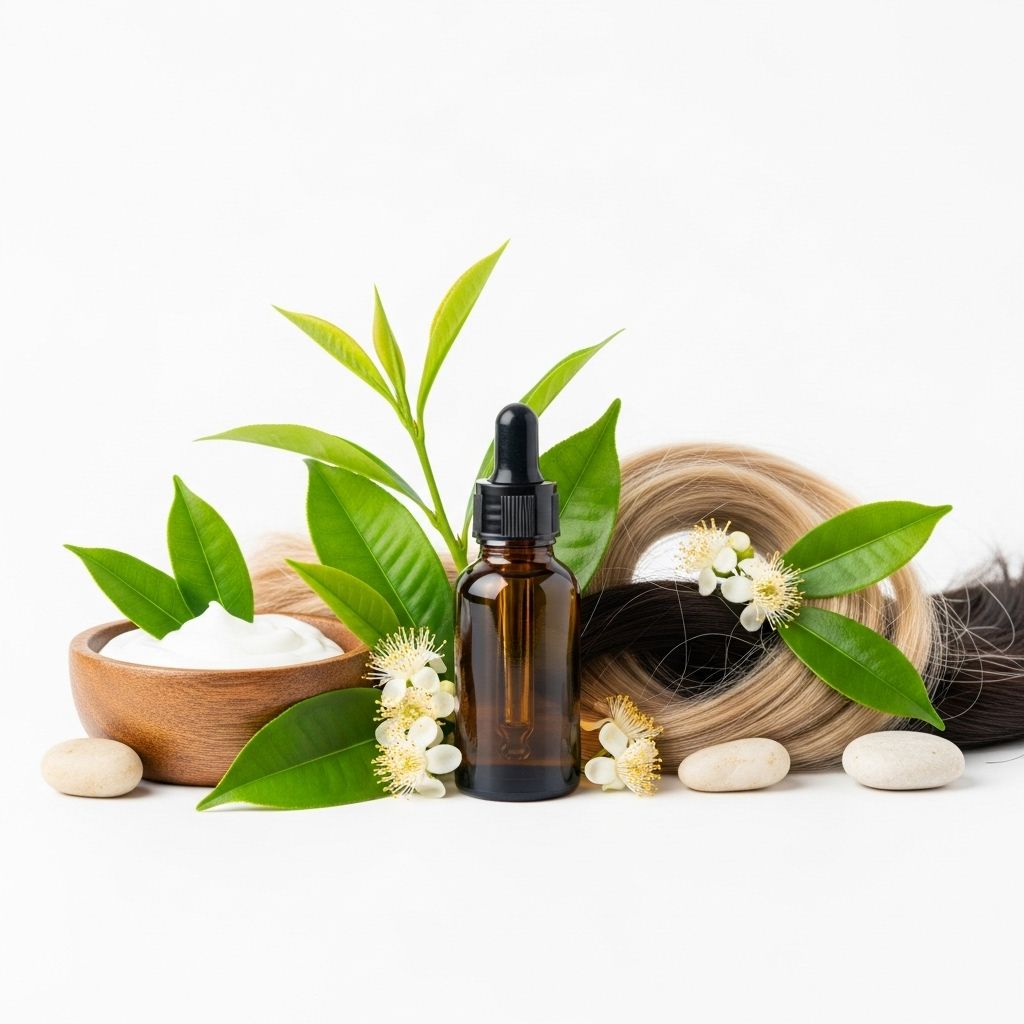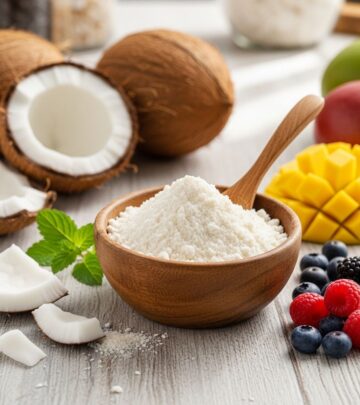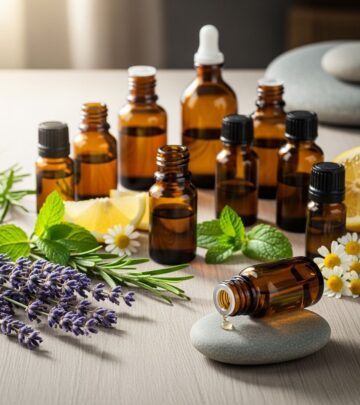Tea Tree Oil: The Complete Guide to Its Remarkable Benefits for Skin, Hair, and Health
Discover simple ways to soothe irritation, control oil, and support overall wellness.

Tea Tree Oil: The Ultimate Guide to Its Powerful Benefits for Skin, Hair & Health
Tea tree oil, extracted from the leaves of the Melaleuca alternifolia plant native to Australia, is revered in natural health and beauty for its versatile, potent properties. Rich in antiseptic, antifungal, and anti-inflammatory agents, it has become a staple in skin and hair care regimens globally, while also offering a range of health-related benefits. This comprehensive guide will uncover the science-backed benefits, trusted uses, application tips, potential side effects, and frequently asked questions about tea tree oil, helping you harness its full potential safely and effectively.
What Is Tea Tree Oil?
Tea tree oil is a volatile essential oil steam-distilled from the leaves of the Melaleuca alternifolia tree. Aboriginal Australians traditionally used crushed leaves for wound healing and respiratory relief. Today, tea tree oil is found in an array of skin, hair, and health products, thanks to its impressive antimicrobial and soothing properties.
- Main Active Compounds:
- Terpinen-4-ol: Responsible for powerful antibacterial and anti-inflammatory effects.
- Gamma-Terpinene: Primarily antifungal, aiding in control of fungal skin and scalp conditions.
- 1,8-Cineole: Contributes to antimicrobial action; promotes healing in small amounts but can be irritating in high concentrations.
With over 100 individual compounds, tea tree oil’s effectiveness is best preserved in properly formulated, pure or blended products. Never ingest tea tree oil; it is for topical use only.
Key Benefits of Tea Tree Oil for Skin
- Effective Acne Treatment: Tea tree oil is well-recognized for its ability to fight Propionibacterium acnes, visibly reducing inflammation, redness, and frequency of breakouts. It can speed healing and prevent new blemishes.
- Soothes Irritated Skin: Regular use can relieve symptoms of eczema, rosacea, and sensitive skin. Its anti-inflammatory properties provide cooling relief and minimize visible redness.
- Controls Excess Oil: As a natural astringent, tea tree oil regulates sebum production, making it ideal for oily or combination skin types. Less oil means fewer blocked pores and reduced acne risk.
- Fades Dark Spots and Scars: By promoting gentle skin renewal, tea tree oil gradually lightens post-inflammatory hyperpigmentation and superficial scars.
- Treats Fungal Infections: The oil’s antifungal action is effective against athlete’s foot, ringworm, and other minor dermal infections.
For best results, use tea tree oil in diluted form or as part of a well-formulated serum, cleanser, or spot treatment. Patch testing is essential to avoid irritation.
Tea Tree Oil for Hair & Scalp
Tea tree oil is a game-changer for holistic hair care routines and scalp health. Its inclusion in shampoos, conditioners, and scalp treatments offers both immediate relief and long-term benefits.
- Fights Dandruff & Itchy Scalp: Its antifungal and antibacterial properties target the yeast causing dandruff, reducing flakiness, itchiness, and irritation effectively.
- Regulates Excessive Oil: Acts as a natural astringent to balance sebum, keeping hair fresh and non-greasy without stripping natural moisture.
- Promotes Healthy Hair Growth: Unclogs follicles and stimulates blood flow, which can lead to stronger, thicker hair. It’s especially helpful when chemical buildup and dead skin impede healthy growth.
- Strengthens Hair Strands: Nourishes the scalp and moisturizes the hair shaft, reducing breakage and improving overall resilience.
- Protects Against Head Lice: Natural insecticidal action makes tea tree oil an effective prevention and treatment aid against lice infestations.
Always mix tea tree oil with a carrier oil or shampoo before application. Use regularly for persistent issues and consult a healthcare professional for severe scalp ailments.
General Health Benefits of Tea Tree Oil
- Antiseptic for Minor Cuts and Abrasions: Its powerful antimicrobial action helps prevent infection when used topically (never on deep wounds).
- Relieves Insect Bites and Stings: Can reduce inflammation and itching when dabbed on affected areas.
- Combats Nail Fungus: Useful in topical applications for mild nail fungus, though persistent cases require medical attention.
- Alleviates Athlete’s Foot: Applied with proper dilution, tea tree oil can help reduce symptoms and recurring fungal infections on the feet.
- Reduces Body Odor: Antibacterial action suppresses odor-causing bacteria, making it a popular natural deodorant ingredient.
- Assists in Respiratory Relief: Aromatic use (never ingestion) in steam inhalation may help clear nasal passages and support breathing comfort in mild cases.
How to Use Tea Tree Oil Safely
- Always Dilute: Mix tea tree oil with carrier oils (e.g., coconut, jojoba, almond) before applying to skin or scalp. Recommended dilution is 1–2 drops per tablespoon of carrier oil.
- Patch Test Essential: Check for allergies or reactions by applying diluted tea tree oil to a small area before widespread use.
- Topical Only: Never ingest tea tree oil. Internal use can cause severe toxicity.
- Avoid Sensitive Areas: Do not use on eyes, inside the ears, or on mucous membranes.
- Pregnancy and Children: Consult a doctor before using on pregnant women or children due to higher sensitivity.
DIY Recipes Using Tea Tree Oil
- Nourishing Acne Spot Treatment:
- Mix 1 drop tea tree oil with 1 teaspoon of aloe vera gel.
- Dab gently on pimples; leave overnight.
- Scalp Treatment for Dandruff:
- Combine 4 drops tea tree oil, 2 tablespoons coconut oil.
- Massage into scalp; leave 30 minutes before washing.
- Anti-fungal Foot Soak:
- Add 8–10 drops tea tree oil to a bowl of warm water and soak feet for 15–20 minutes.
- Natural Deodorant Spray:
- Combine 3 drops tea tree oil with 50 ml water and 2 drops lavender oil.
- Spray underarms as needed.
Comparative Table: Tea Tree Oil Benefits for Skin vs. Hair vs. Health
| Application | Major Benefits | How to Use |
|---|---|---|
| Skin Care | Acne reduction, soothes irritation, fades spots, treats fungal infections | Diluted oil as spot treatment, cleansers, balms; avoid eyes/mucous tissues |
| Hair & Scalp | Reduces dandruff, soothes scalp, balances oiliness, strengthens strands, prevents lice | Add to shampoo/conditioner, create scalp oils, regular use for ongoing issues |
| General Health | Antiseptic for cuts, treats nail fungus, relieves bites, deodorant effects | Topical application in creams, sprays, diluted soaks only |
Potential Side Effects and Precautions
Despite its popularity, tea tree oil can pose risks if used improperly. The most common side effects include:
- Skin Irritation: Redness, rash, itching, and stinging often result from using undiluted oil.
- Allergic Reactions: Eczema-like symptoms may occur in sensitive individuals.
- Toxicity if Ingested: Swallowing tea tree oil can lead to serious complications—nausea, vomiting, confusion, and even coma.
- Pediatric Sensitivity: Extra care is required when using tea tree oil on children; consult pediatric advice.
- Interaction with Medications: Discuss with your healthcare provider if you are on topical or oral medications, especially for skin conditions.
Frequently Asked Questions (FAQs)
Is tea tree oil suitable for all skin types?
Most skin types tolerate diluted tea tree oil well, but those with highly sensitive or allergic skin may experience irritation. Patch testing is essential before generalized use.
Can tea tree oil cure acne completely?
Tea tree oil is effective for mild to moderate acne control but may not address severe or cystic acne alone. Results vary; use in conjunction with a complete therapy plan for best effects.
Is tea tree oil safe for colored or chemically treated hair?
Yes, it helps counteract buildup from styling products, but always use diluted forms. Avoid overuse, as essential oils may affect hair’s moisture balance if used excessively.
Can tea tree oil be mixed with other essential oils?
Certainly! Tea tree oil blends well with lavender, rosemary, eucalyptus, and peppermint oils, which can enhance its benefits for skin and scalp.
Should tea tree oil be used daily?
Frequency depends on your needs and skin or hair type. For persistent conditions like dandruff or acne, 2–3 times weekly is typical. Daily use is safe if tolerable, but adjust for sensitivity.
Are there any contraindications with tea tree oil?
Do not use if you are allergic to the Myrtaceae plant family. Pregnant or breastfeeding women, and children under 12, should consult a healthcare provider prior to use.
Tips for Selection and Storage
- Buy 100% pure, therapeutic-grade tea tree oil from reputable brands.
- Store in a cool, dark place in glass containers to prevent oxidation.
- Avoid plastic packaging, which can degrade essential oil quality.
Conclusion: Unlock the Power of Tea Tree Oil
Tea tree oil stands out as one of nature’s most versatile healers, addressing concerns from acne to dandruff and minor skin infections. Used correctly—with respect for its potency and risks—it can transform your skin, hair, and health routines with minimal environmental impact. Begin with small, carefully measured applications, and allow time for results to manifest, always prioritizing safety and quality. Whether incorporated into DIY remedies or commercial products, tea tree oil remains a timeless ally in natural beauty and wellness.
References
- https://cityskinclinic.com/benefits-tea-tree-oil-skin-hair/
- https://lovebeautyandplanet.in/blogs/ingredients/tea-tree-oil-for-hair-care
- https://www.healthline.com/health/tea-tree-oil-for-hair
- https://www.mayoclinic.org/drugs-supplements-tea-tree-oil/art-20364246
- https://www.healthline.com/nutrition/tea-tree-oil
- https://curlsmith.com/blogs/ingredients/tea-tree-oil-hair-benefits
- https://wimpoleclinic.com/blog/tea-tree-oil-for-hair/
Read full bio of medha deb












